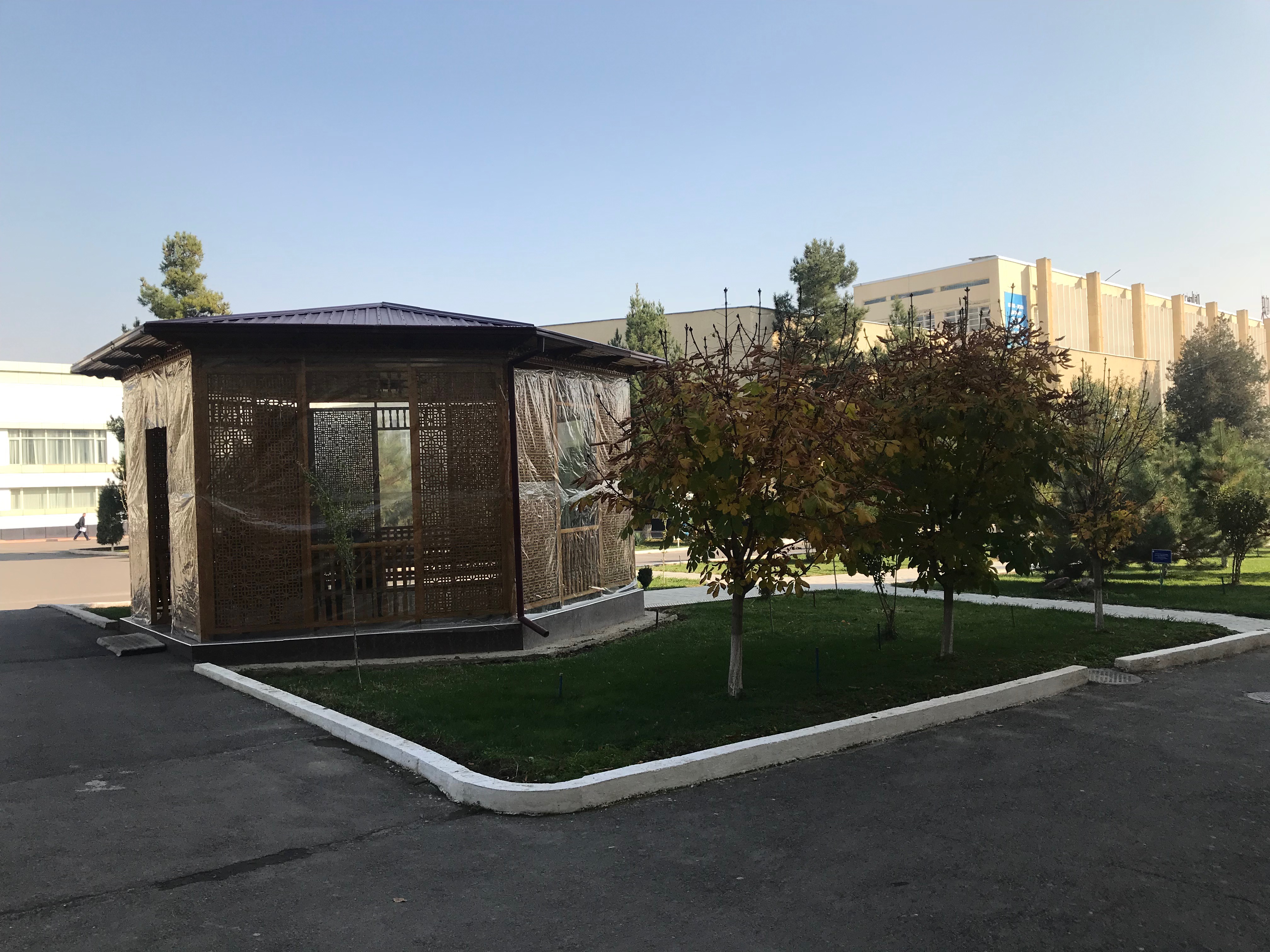Venue
Venue
XXII International Scientific Conference on Advanced In Civil Engineering CONSTRUCTION THE FORMATION OF LIVING ENVIRONMENT 2019 will take place in Tashkent Institute of Irrigation and Agricultural Mechanization Engineers (TIIAME).
Address: Republic of Uzbekistan, Tashkent city, Kari Niyozov street, 39-house
Nearest Hotels
(1) Pakhtakorskaya Street 5, 100011 Tashkent, Uzbekistan
(2) Amir Temur Street 15, 100000 Tashkent, Uzbekistan
(3) Student Hostel
Conference participants can stay in the student hostel for free. The number of rooms is limited. For more information please contact us via e-mail science@mgsu.ru
How to get TIIAME from Airport
About Tashkent Institute of Irrigation and Agricultural Mechanization Engineers, former Tashkent Institute of Irrigation and Melioration
Tashkent Institute of Irrigation and Agricultural Mechanization Engineers (TIIAME) is a unique university in Central Asia, the history of which dates back to the Soviet Union.
TIIAME began its work in 1923 with the establishment of the Hydro Technical Engineering Faculty as the department of the Turkistan State University. In 1929 government decided to establish a new department - the Melioration Engineering Faculty, and link two departments together, which led to the establishment of Central Asian Cotton Irrigation Polytechnic University. The establishment of the Institute began to respond to the high demand for workers in agriculture and water industry of the Republic.
On 11 November 1934, Central Asian Cotton Irrigation Polytechnic University was merged with the Central Asian Institute of Agricultural Industry Irrigation and Mechanization, which was the reason for the creation of Tashkent Institute of Agricultural Industry Irrigation and Mechanization.
After World War II, the agricultural industry of the country increased rapidly, this affected the need for professional employees. In this connection a number of faculties were created: Building (1945), Mechanization of Hydro Melioration (1946), and Hydro Energetics (1946). In 1974 a new faculty was named Technology of Repairing Agricultural Industry Machines and Creating Them. In 1979 a number of engineering faculties were opened, which was directly linked to the economic growth in Uzbekistan.
Throughout the years of independence, the institute has developed partnerships with universities in foreign countries to exchange academic experiences. At the institute all the textbooks were interpreted into Uzbek language, and most of the classes started to be taught in the native language of Uzbekistan.
On March 30, 2004 by the decision of the Cabinet of Ministers of Uzbekistan, the institute was transformed into Tashkent Institute of Irrigation and Melioration. In 2017 institute took a name Tashkent Institute of Irrigation and Agricultural Mechanization Engineers.
Nowadays the institute involves 5 faculties with 30 departments. It has 353 professors and teachers and more than 4860 students.
TIIAME consists of 4 main buildings, 3 laboratory buildings, modern scientific centers and an information recourse center which has 700 thousand materials in its fund.
Tashkent Institute of Irrigation and Agricultural Mechanization Engineers plays a huge role in the development of Uzbekistan economy and industry and supplies the country with highly qualified specialists.
About Tashkent
Tashkent is the capital of the Republic of Uzbekistan. The city is located in the north-eastern part of the country, in the foothills of the western Tyan Shan, valley of Chirchik, at the height of 440-480 meters above sea level, on the Great Silk Road from China to Europe. The history of modern Tashkent counts more than 2500 years. The city has evolved from a small ancient settlement to the one of the largest metropolitan areas in the region.
Nowadays Tashkent is the most populated city in Central Asia, a political, economic, cultural and scientific center of the country. It is a major industrial, transportation and trade hub for Central Asia.
Tashkent is a very attractive and vibrant city. The roots of the rich Uzbek culture shine through the city’s architecture, museums and metro stations.
The Tashkent Metro, currently the only subway in Central Asia, is fantastically designed in a unique, monumental Uzbek-Soviet style.
The modern section of the city coexists with the old quarter (partly reconstructed), with its narrow, twisting streets, numerous mosques and bazaars. The city is lined with a grid of straight and wide streets and avenues, decorated with emerald green parks, gardens and fountains.
Tashkent is the educational and scientific center of Uzbekistan. Among the city's educational and cultural facilities are Tashkent State Univ. and the Uzbek Academy of Sciences. There are many museums, a Muslim university, and several theater companies.
Tashkent is often called a city of peace and friendship. For a very short period of time Tashkent became well known in the world as the capital of the new sovereign, independent state. Numbers of summit talks are held in Tashkent. The city is host to Embassies and consulates of many countries of the world.




